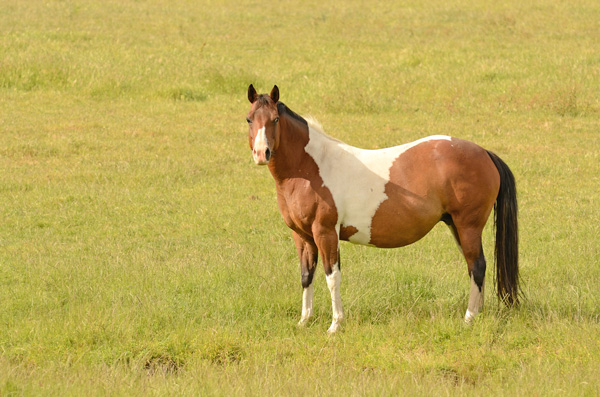
With all the conversations today about genetically modified grains in human foodstuffs, it’s interesting to note that they abound in the grains used for horse feeds. And there is no way to tell which feeds have those genetically modified grains and which don’t. And there has been no research on whether it makes a difference to the health and nutrition of the horses. The expert staff at Kentucky Equine Research delve into this topic and give us some information about genetically modified grains used in horse feeds.
Corn, soybeans and sugar beets are staples of many feed products fed to horses. These crops are also widely used for human consumption and are important raw materials for biofuels, plastics and other industrial commodities.
About 95% of sugar beets (the source of beet pulp), 94% of soybeans (source of fat and high-quality protein), and 90% of corn (source of carbohydrates) grown in the U.S. are from genetically modified (GM) plants. Growers who sell their harvested crops to feed mills are not required to disclose whether or not the crops contain GM strains. For these reasons, it is difficult to find horse feed products that are completely free of GM ingredients.
Horse owners who want to buy feeds without GM grains can look for products that are certified as organic by the USDA. By law, however, the organic label means only that the product cannot contain any deliberately added genetically engineered ingredients. Because pollen from nearby GM crops may be spread to an organic field by wind and insects, it is virtually impossible to guarantee that a particular harvest is totally GM-free.
The owner of one organic mill put this explanation on his company’s website: “I get questions regarding the GM status of our products, so I thought I would post here for our friends. All of our organic products are produced from non-GM grains. It is true, however, that there is some cross-pollination that occurs in nature, especially in corn, so while the planted seeds are non-GM, you can pick up traces of GM in testing. Typically these are at a very, very low percentage.”
Also known as biotech strains, bioengineered crops have been designed to enhance desirable characteristics. For example, GM strains of wheat are resistant to insect damage; GM corn continues to thrive during periods of drought; and GM soybeans have an improved yield per acre.
Proponents say that bioengineering allows more efficient use of cropland, while detractors fear possible health or environmental impacts. Research has so far failed to prove specific dangers from the consumption of modified grains by horses, other livestock or humans, but some consumers still express concerns about safety.
One study entitled “Animal nutrition with feeds from genetically modified plants” concluded: “During the last few years, many studies have determined the nutrient value of GM feeds compared to their conventional counterparts, and some have additionally followed the fate of DNA and novel protein. The results available to date are reassuring and reveal no significant differences in the safety and nutritional value of feedstuffs containing material derived from the so-called first generation of genetically modified plants (those with unchanged gross composition) in comparison with non-GM varieties. In addition, no residues of recombinant DNA or novel proteins have been found in any organ or tissue samples obtained from animals fed with GM products.”
However, further study is needed to determine the effect, if any, on horses and other animals consuming GM grains over long periods of time


